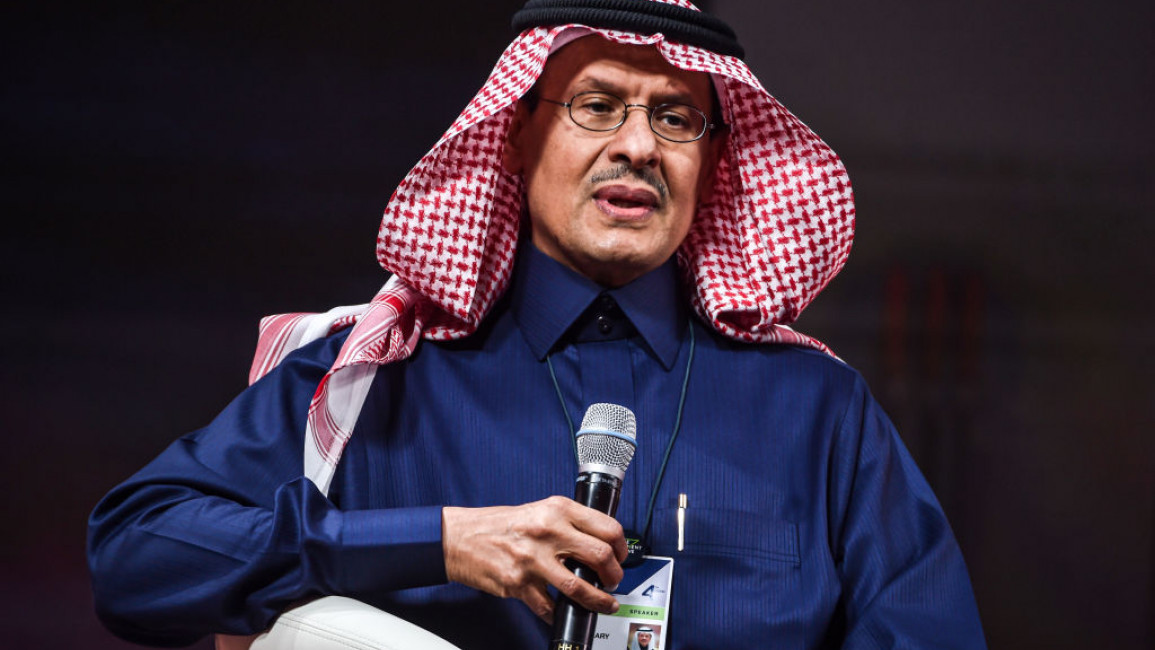Saudi energy minister slams UAE for blocking OPEC+ deal
Saudi Arabia slammed the United Arab Emirates on Sunday for blocking an agreement to help cool down oil prices at a meeting for oil-producing countries and allies.
The agreement for OPEC+ which groups the Organization of the Petroleum Exporting Countries, Russia, and their allies, looked to up oil production as prices hit a two-and-a-half-year high.
However, the UAE contested an extension clause that would keep a baseline for its oil production that was agreed upon back in spring 2020, when the coronavirus pandemic hit.
"I have attended OPEC + meetings for 34 years, and I have not seen a demand like that of the UAE," energy minister Abdulaziz bin Salman al-Saud told Al-Sharq, an Egyptian channel.
Meetings between the OPEC+ group of oil-producing countries were meant to end on Thursday but continued because the UAE blocked the agreement.
OPEC+ voted on Friday to increase output by around 2 million barrels per day (bpd) from August to December 2021 and to extend remaining cuts to the end of 2022, instead of ending in April 2022, OPEC+ sources said.
The current baseline for all countries is due to expire in April 2022, when countries will be able to renegotiate it - but the Russia-Saudi Arabia agreement wants to push that date back until the end of the year.
OPEC+ sources said the UAE complained that its baseline - the level from which any cuts are calculated - was originally set too low, an issue it raised before but was ready to tolerate if the deal ended in April 2022 but not if it went on longer.
UAE state media quoted the energy ministry as saying in a statement that the UAE supports the increase in production by the group known as OPEC + from August to the end of the current agreement in April 2022, because the market "is in dire need of increasing production".
However, extensions to the 2020 deal should only be made if the agreement's conditions are reassessed when extensions are made, the ministry reportedly said.
World's biggest oil exporter Saudi Arabia and the UAE are long-time allies, making the spat a rarity.
Last year, oil prices tumbled to levels not seen for decades as a result of the coronavirus pandemic and the price war between Russia and OPEC kingpin Saudi Arabia following their failure to agree on further output cuts. Riyadh then opened the oil taps to flood the market.
The price of a barrel of oil plummeted to below $0.
OPEC has since been gradually allowing more oil production, with demand for oil is high as countries try to bounce back from the effects of the pandemic.



